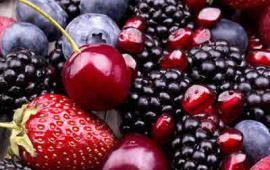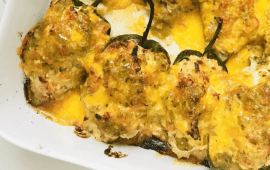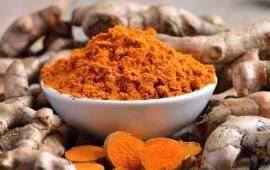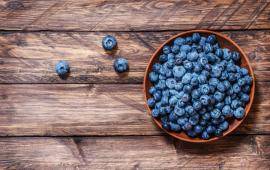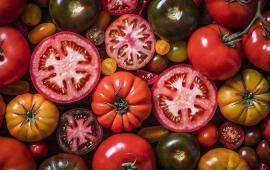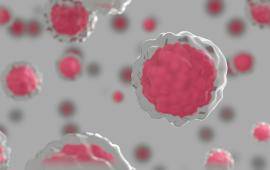
Pancreatic Cancer Natural Treatment
Integrative treatment of pancreatic cancer is primarily focused to reduce side effects of chemotherapy and radiation therapy.
Pancreatic Adenocarcinoma is the most frequent pancreatic cancer. The treatment protocol with chemotherapy uses gemcitabine. It is important to minimize the side effects of gemcitabine, in order to have better tolerance, thus allowing chemotherapy cycles to be completed without interruption.
It is necessary to control the immunity with white blood cell count test, since, if the count is less than 3000, chemotherapy is postponed until it reaches these levels. On the other hand, the immune system is important in the control of cancer growth and once the chemotherapy cycles have finished it is necessary to recover the normal values of white blood cells in the shorter possible time. There are Chinese Herbal formulas that boost the immune system. Intravenous vitamin C also helps to strength the immune system.
Pancreatic cancer chemotherapy side effects, such as nausea, vomiting, fatigue can improve with Chinese Herbal formulas addressed to strengthen the digestive system in conjunction with acupuncture. Intravenous vitamin C improves fatigue associated with the administration of chemotherapy.
Integrative oncology can also help to reduce side effects of radiation therapy, such as radiodermatitis or fatigue. The effects of long-term radiation therapy can also be diminished using antioxidant nutrients.
In the treatment of pancreatic cancer, it is very important to eliminate cancer stem cell, so surgery is always the treatment with best prognosis. Chemotherapy and radiotherapy are also aimed at killing cancer cells, but they cause significant side effects and weaken the body. Therefore, recovering and strengthening the body after these treatments, helps prevent cancer recurrences.
Diet plays a very important role to remove toxicity of the treatments and to improve quality of life.
Scientific studies on the anticancer effect of some Chinese herbs, specifically in pancreatic cancer, such as Fructus Bruceae and Scutellaria Baicalensis have proven their action in induction of apoptosis or cell death of pancreatic adenocarcinoma cells. The Sophora Flavescens herb has powerful alkaloids, matrine and oximatrin, which have been shown to induce apoptosis or cell death of pancreatic cancer cells, in addition to have an antiangiogenic effect, that is, it inhibits the formation of new tumor vessels. Magnolia Officinalis contains a substance called honokiol that induces apoptosis and potentiates the cytotoxic effect of gemcitabine chemotherapy on the tumor cells of pancreatic cancer. Rhizoma Curcumae Longae contains curcumin, whose studies have shown its effect of inhibiting the growth of pancreatic adenocarcinoma, in addition to increasing the cytotoxic effect of gemcitabine chemotherapy. Poria Cocos stops the growth and invasion of pancreatic cancer cells, in addition to inducing apoptosis or cell death
Scientific studies on the anticancer effect of Chinese herbs in pancreatic cancer
- Lau, S. T. et al. 2009. Brucein D induces apoptosis in pancreatic adenocarcinoma cell line PANC-1 through the activation of p38-mitogen activated protein kinase. Cancer Lett. 281: 42–52.
- Zhao, M. et al. 2011. Seven quassinoids from Fructus bruceae with cytotoxic effects on pancreatic adenocarcinoma cell lines. Phytother. Res. 25: 1796–800.
- Takahashi, H. et al. 2011. Baicalein, a component of Scutellaria baicalensis, induces apoptosis by Mcl-1 down-regulation in human pancreatic cancer cells. Biochimica et Biophysica Acta 1813: 1465–74.
- Liu, T. Y. et al. 2010. Matrine inhibits proliferation and induces apoptosis of pancreatic cancer cells in vitro and in vivo. Biol. Pharm. Bull. 33: 1740–5.
- Ling, Q. et al. 2011. Oxymatrine induces human pancreatic cancer PANC-1 cells apoptosis via regulating expression of Bcl-2 and IAP families, and releasing of cytochrome c. J. Experim. Clin. Cancer Res. 30: 66.
- Chen, H. et al. 2013. Antiangiogenic effects of oxymatrine on pancreatic cancer by inhibition of the NF-κB-mediated VEGF signaling pathway. Oncol. Reports 30: 589–95.
- Arora, S. et al. 2011. Honokiol arrests cell cycle, induces apoptosis, and potentiates the cytotoxic effect of gemcitabine in human pancreatic cancer cells. PLoS One 6: e21573.
- Hidaka, H. et al. 2002. Curcumin inhibits interleukin 8 production and enhances interleukin 8 receptor expression on the cell surface impact on human pancreatic carcinoma cell growth by autocrine regulation. Cancer 95: 1206–14.
- Sahu, R. P. et al. 2009. Activation of ATM/Chk1 by curcumin causes cell cycle arrest and apoptosis in human pancreatic cancer cells. British J. Cancer 100. 1425–33.
- Shahar, L. A. et al. 2007. Curcumin augments gemcitabine cytotoxic effect on pancreatic adeno-carcinoma cell lines. Cancer Investigation 25: 411–8.
- Swamy, M. V. et al. 2008. Prevention and treatment of pancreatic cancer by curcumin in combination with omega-3 fatty acids. Nutr. Cancer 60(Suppl. 1): 81–9
- Mach, C. M. et al. 2009. Determination of minimum effective dose and optimal dosing schedule for liposomal curcumin in a xenograft human pancreatic cancer model. Anticancer Res. 29: 1895–900.
- Cheng, S. J. et al. 2013. Triterpenes from Poria cocos suppress growth and invasiveness of pancreatic cancer cells through the downregulation of MMP-7. Intl. J. Oncol. 42: 1869–74.
Scientific studies on the anticancer effect of Intravenous Vitamin C s in pancreatic cancer
- Alexander MS et al. (2018) Pharmacological ascorbate reduces radiation-induced normal tissue toxicity and enhances tumor radiosensitization in pancreatic cancer. Cancer Res. 2018 Sep 25. pii: canres.1680.2018. doi: 10.1158/0008-5472.CAN-18-1680.
Ask for opinion and find an appropriate solution to your problem
ONLINE Doctor Consultation

